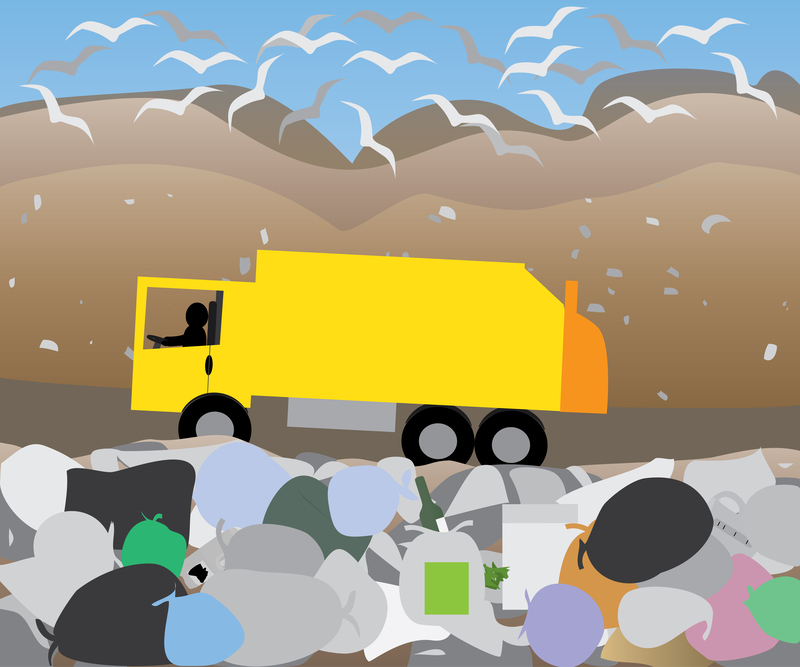Explore Smart Home Recycling Practices: A Comprehensive Guide
Are you ready to take your home's sustainability to the next level? In this in-depth article, we explore the latest and most effective smart home recycling practices. Learn how modern technology can help you recycle more efficiently, reduce waste, and create a greener future for your family.

Why Smart Home Recycling Matters
With the ever-growing issue of landfill waste and environmental pollution, smart home recycling has become more than just a trend--it's a necessity. Engaging in eco-friendly home recycling routines can:
- Reduce your household's carbon footprint
- Conserve valuable resources like water, energy, and raw materials
- Save money by encouraging reuse and efficient waste management
- Contribute to healthier communities and a cleaner planet
But how can you make your recycling practices smarter? The answer lies in smart home technology and innovative strategies that simplify sorting, tracking, and disposing of recyclables effectively.
Understanding the Basics of Recycling at Home
Before diving into high-tech solutions, it's essential to build a solid foundation. Home recycling starts with:
- Sorting recyclables correctly--separating plastics, glass, metals, paper, and organics
- Cleaning items before recycling to avoid contamination
- Learning about your local recycling guidelines
Despite your best efforts, confusion and mistakes can occur. That's where smart recycling innovations come in to help automate and optimize your efforts.
Integrating Smart Technology in Home Recycling
Advancements in IoT and smart home devices are changing recycling as we know it. The market now offers several smart home recycling solutions designed to make eco-friendly decisions easy and more effective.
1. Smart Recycling Bins and Containers
Smart bins are equipped with sensors and AI-driven sorting mechanisms. Some top features include:
- Automatic sorting of recyclables using Cameras and sensors that detect materials
- Filling level notifications sent to your smartphone when bins need to be emptied
- Integration with mobile apps for real-time tracking of your recycling habits
Popular examples: Oscar Sort, Bin-e, and TrashBot are revolutionizing home waste management with minimal human intervention.
2. Recycling Assistant Apps
A range of apps are now available to help you monitor your recycling progress and receive tips for smarter sorting:
- EcoCoach: Offers personalized advice and gamified recycling achievements
- iRecycle: Shows how and where to properly dispose of hundreds of items
- RecySmart: Connects to smart bins for tracking and feedback
3. AI-Enabled Waste Sorting Systems
Some advanced systems use artificial intelligence and robotics to quickly differentiate between recyclables and non-recyclables. Incorporating these systems in your smart home not only saves time but reduces human error, resulting in higher recycling rates and less contamination.
4. Kitchen Gadgets for Organic Waste
Composting is a vital branch of smart home recycling. Modern solutions include:
- Smart composters that regulate temperature/moisture and notify you when it's ready
- Food cyclers for rapid decomposition of kitchen scraps into nutrient-rich soil
These devices turn kitchen waste into valuable compost automatically and efficiently, making sustainable living more accessible than ever.
Automating Your Home's Recycling Workflow
One of the biggest benefits of smart recycling at home is automation. Here are innovative ways to make recycling an effortless part of daily life:
- Program reminders for curbside recycling pick-up via your smart speaker (like Alexa or Google Home)
- Connect smart bins to your home's Wi-Fi network for status updates
- Use barcode scanners that can instantly classify packaging and suggest recycling actions
- Set up family rewards systems for recycling milestones using mobile apps
As you explore smart home recycling practices, you'll discover that delegation and automation minimize forgetfulness and confusion, ensuring maximum impact from minimal effort.
Best Practices for Smart Home Recycling
1. Stay Informed About Local Rules
Even the smartest gadget can't override local recycling regulations. Always double-check your municipality's guidelines regarding:
- Accepted materials
- Pickup schedules and frequency
- Special drop-off locations for electronics, batteries, and hazardous materials
2. Cleanliness Is Key
Contamination is a major issue for recycling centers. Rinse containers and remove food residue before putting items in the recycling bin--even AI-powered bins have limitations!
3. Reduce and Reuse Before You Recycle
Always prioritize reducing waste and reusing items. Smart recycling is not just about what you throw away, but about making more conscious purchases and reusing containers, bags, and packaging whenever possible.
4. Periodically Audit Your Waste
Use smart apps or simple checklists to review your waste production. This will help you spot patterns and identify new opportunities for eco-friendly changes at home.
5. Educate and Involve the Entire Household
Make sure everyone in your family--even kids--knows how to use your smart recycling system. Use labels, instructions, and gamified apps to build lasting green habits.
Emerging Trends in Smart Home Recycling Technology
The future of smart home recycling is promising, with new technologies and strategies emerging every year. Today's developments hint at even greater potential for environmentally friendly homes, including:
- Blockchain-enabled traceability for ensuring that recyclables are properly processed
- Smart packaging with embedded chips to identify recyclable materials
- Neighborhood recycling hubs equipped with IoT and digital rewards for collective impact
- Voice-activated home assistants that provide feedback and reminders about recycling tasks
These innovations open the door to even more efficient, accurate, and community-driven recycling.
Addressing Common Obstacles to Smart Recycling
Even the best technology can't solve all recycling challenges. Here are some common issues and smart solutions:
- Limited recycling knowledge: Use educational apps or AI assistants to access instant recycling advice.
- Space constraints: Opt for modular or vertical smart bins that fit smaller homes and apartments.
- Uncertainty about e-waste: Use digital reminders and directories for hazardous or electronic waste disposal dates and drop-off points.
- Resistance from household members: Encourage participation with gamification, family challenges, and visible progress reports.
Benefits of Adopting Smart Home Recycling Solutions
Switching to a smart recycling system at home isn't just about convenience--it delivers a host of tangible benefits:
- Higher recycling rates: Automated sorting and reminders ensure more materials are properly diverted from landfills.
- Cost savings: Reduced waste hauling costs and potential rebates for compliant recycling efforts.
- Cleaner living space: Organized, sensor-equipped bins reduce clutter and unpleasant odors.
- Positive environmental impact: Less pollution, resource depletion, and greenhouse gas emissions.
How to Get Started with Smart Home Recycling
Ready to explore smart home recycling practices in your own life? Follow this action plan:
- Assess your current waste and recycling habits.
- Choose the smart home devices and apps that best fit your family's needs and budget.
- Educate your household on how to use new tools and regularly review progress together.
- Adjust your habits as needed based on real-time feedback and reports provided by your technology.
Tip: Look for energy-efficient smart bins and devices to maximize sustainability benefits.

Conclusion: Upgrade Your Sustainability with Smart Home Recycling Practices
Modern recycling isn't just about separating paper and glass--it's about integrating smart recycling solutions into your everyday routine. These systems combine cutting-edge technology, automation, and user-friendly apps to ensure that your waste reduction efforts are as effective as possible.
By adopting innovative smart home recycling habits, you can make a significant impact on the environment, save money, and set a positive example for others. Whether you're starting small with a single smart bin or transforming your whole home ecosystem, every step counts. The key is continuous learning, adaptation, and community engagement.
Are you ready to join the smart recycling revolution? Explore your options today and make your home a beacon of sustainability!
Frequently Asked Questions about Smart Home Recycling
- What is a smart recycling bin? A smart recycling bin is an internet-connected device that uses sensors and artificial intelligence to sort, monitor, and report on household waste.
- Can smart home recycling save money? Yes! Optimizing recycling could reduce trash pickups, lower waste disposal fees, and potentially qualify you for local rebates.
- How can I involve my kids in smart recycling? Gamify the process with apps, reward charts, or family competitions to make recycling fun and engaging for all ages.
- Are smart recycling systems suitable for apartments? Absolutely. Many smart bins and composters are compact and designed for smaller living spaces.
- Where can I buy smart recycling devices? Shop online or at home improvement stores. Popular brands include Simplehuman, Bin-e, and Lomi.
Start your journey to a greener, cleaner future by exploring smart home recycling practices today!